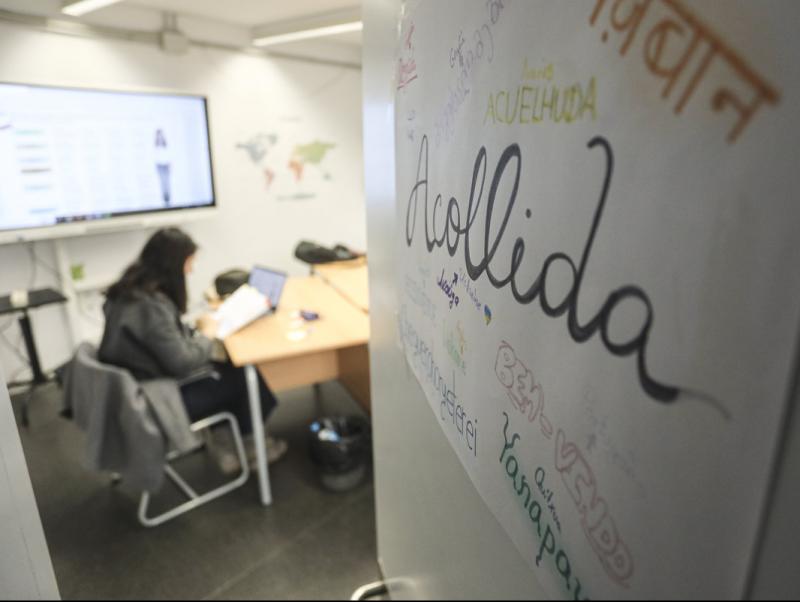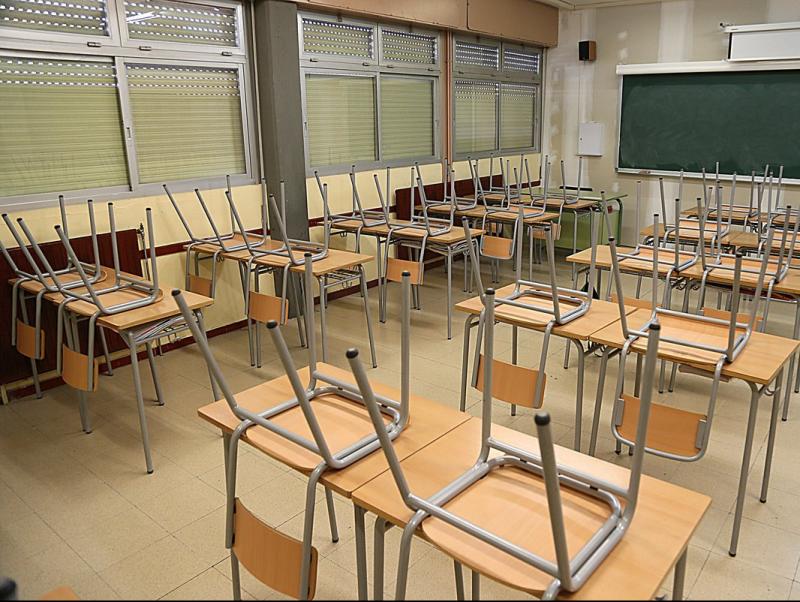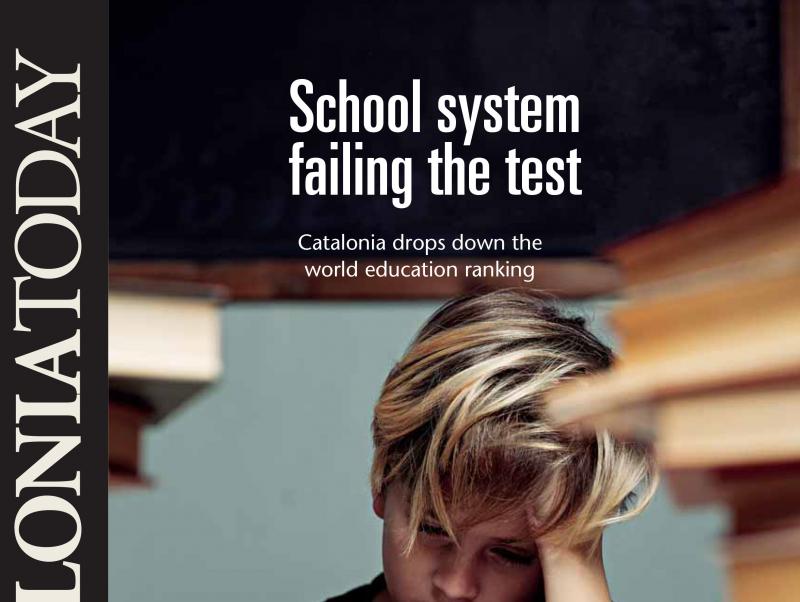“Always juggling”
Teachers are tired of being singled out and questioned about the poor performance of the education system
teachers are tired of continually adapting to education laws that change with the political colour of the government
Opening the door of a classroom, whether in primary or secondary school, provides a reflection of the diversity that characterises today’s society and you have to adapt to it. People don’t realise how much work and headaches this entails. We are constantly juggling,” explains Salva Cervera, a teacher at the Ferrer i Guàrdia secondary school in Sant Joan Despí. A high ratio of students from unfavourable socioeconomic situations, children in need of intensive educational support (autism spectrum disorders, behavioural disorders, disabilities, etc.) and various individualised plans, whether due to attention deficit, dyslexia, lack of knowledge of the language or diversity of all kinds. A class profile that is made up with the rest of the students, who also have their own pace of learning and acquire knowledge following a curriculum with specific contents and through diverse methodologies. An education that may have become obsolete and should be adapted to 21st-century students. And in the midst of all this, teachers who see how their work, which the vast majority consider undervalued and questioned, is once again at the centre of the umpteenth political and media debate following the latest results of the PISA (Programme for International Student Assessment) tests, which have placed the Catalan education system at the tail end of those of Spain and below the average of OECD (Organisation for Economic Cooperation and Development) countries.
It seems that everyone has an opinion on education, while the very professionals who enter the classrooms of schools throughout Catalonia every day are reluctant to have their say. Few are willing to talk about it. “No thanks”, “Don’t have the energy”, “They only come to us when the data are bad”, “I don’t feel like it”, “Sterile debates”, “Now they blame immigration to deflect from mismanagement and poor budgeting”. These are some of the things that a large number of teachers have said when rejecting the invitation to speak. “The focus is always on the teacher, the last step in the education system, and that stings,” says Marina Ruiz, a primary school teacher at the Elisa Badia school in Barberà del Vallès. They are tired of being the ones who are poorly treated, of continually adapting to education laws that change with the political colour of the government, of the growing tension in the classroom with students, of questioning by families and society in general, of the bureaucracy that they consider excessive and perhaps unnecessary and that takes away hours that could be devoted to preparing classes, of the lack of labour improvements and the need to increase investment to reverse the situation. Despite all this, however, there are a few teachers who want to participate in the debate to reflect on the current state of education, because they are passionate about their work and willing to contribute to improving it and also denounce the shortcomings of the system.
“The results have not been good for a long time,” says Darío Castro, director of the Europa Institute, a highly diverse centre in L’Hospitalet de Llobregat. “If it’s not the pandemic, it’s because of changes in programmes and, if not, because of constant changes in the law... There are always excuses or some reason to justify the results. But I don’t think they’ve ever said, ’Let’s look at the cause, what’s really going on’,” he complains. Primary teacher Marina Ruiz has similar feelings: “The pressure falls on teachers who get poor results without delving into why. We feel the pressure from families and society, because only the final result is analysed, but not the process.”
Group of experts
The creation of a steering group to propose educational improvements from next academic year generates doubts among teachers, who see it as a “smokescreen to try to silence criticism” for the poor results and a reaction to headlines. Some criticise the profiles of the group’s members because they are “part of the system”, meaning they are in favour of the policies promoted by the Department of Education in recent years. They believe the same people who have “spoiled” the model will now make proposals to change it.
More resources and more staff
A key to improving education and, above all, to attending to the diversity of students, is to increase investment to at least expand the teaching staff in the classroom and thereby reduce teacher-student ratios.
Eva Vázquez, a teacher at the Sant Roc de Paüls school in Terres de l’Ebre, is very critical of the Department and notes that despite Catalan education law allocating 6% of GDP to education, the reality is only 4%. She calls for a more adequate distribution focused on resolving the shortcomings, and that it is not necessary to allocate so much money to new technologies, for example. “They don’t put the resources where they need to be,” she says.
Families
Another pillar of the education system are the families of pupils, who are increasingly questioning the work that teachers do. It is becoming more common for parents to demand explanations about pedagogical approaches or incidents surrounding some misconduct on behalf of their child (the use of mobile phones, lack of respect, classroom conflicts, and so on).
Teachers also complain about a lack of knowledge regarding their work and the usual refrain that “teachers have an easy life” or long holidays, without taking into account all the non-visible work they do. And although the family plays an important role in accompanying the learning of their children, the reality is that, whether because of a lack of time, or issues of work and vulnerability, the support isn’t always there. “When basic needs are not covered, the rest is secondary,” teachers say, especially for students with socioeconomic problems.
Many teachers in Catalonia are suffering from stress, anxiety and many are even on sick leave. This instability is reinforced by power that has been granted to school managers, who select teachers and restrict divergent opinions based on teachers’ “fear of losing their jobs”. All in all, there is a clear and urgent need for change.
Feature EDUCATION
A focus on competences
The poor results of the PISA tests have set off all alarm bells, but teachers also question the content of this evaluation, because it is “highly competence-based”, according to Sara Solà, a teacher at the Príncipe de Viana secondary school in Barcelona. And she wonders if “to really improve the education system” we need to focus only on these tests. For Solà, it is necessary “to teach students to learn to learn, that is, regardless of the context, to be able to connect with the knowledge they have. And this is not being worked on enough in schools.”







